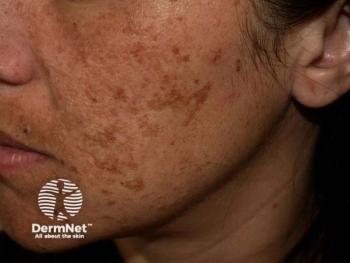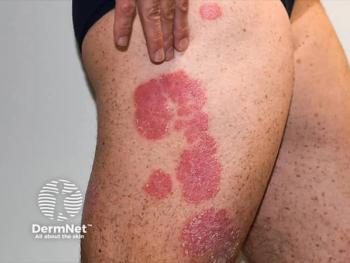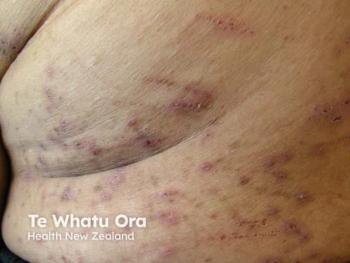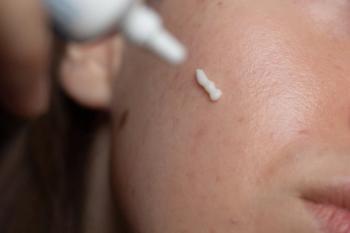
Three-Year Data Reveals Long-Term Power of Bimekizumab for PsA
Key Takeaways
- Bimekizumab demonstrated sustained efficacy in PsA and axSpA, with significant inflammation control and deep efficacy across patient groups over three years.
- In PsA, 59.5% of biologic DMARD-naïve and 59.1% of TNFi-IR patients achieved elimination of swollen joints, with nearly half reaching minimal disease activity.
At the 2025 EULAR meeting, UCB presented new 3-year data on bimekizumab for PsA.
At this year’s EULAR (European Congress of Rheumatology) meeting in Barcelona, Spain, UCB presented new
“PsA and axSpA are serious, chronic inflammatory diseases that can have a great impact in the daily lives of patients and their families. The data presented at EULAR reinforce the role of bimekizumab to deliver deep, consistent and sustained outcomes across a spectrum of PsA and axSpA,” said Donatello Crocetta, MD, MBA, Chief Medical Officer, UCB, in the release. “These data, alongside our other EULAR data presentations of dapirolizumab pegol in systemic lupus erythematosus and romosozumab in osteoporosis, reflect UCB’s commitment to offering differentiated, science-driven solutions that meet the diverse and evolving needs of people living with rheumatic diseases.”
PsA: Durable Control in a Heterogeneous Population
Researchers found that bimekizumab demonstrated consistent, long-term efficacy in adults with active PsA, regardless of prior treatment exposure. Across 3 studies—BE OPTIMAL, BE COMPLETE, and BE VITAL (the open-label extension)—patients showed robust responses on stringent clinical endpoints over the 3-year period.
Notably, 59.5% of biologic DMARD–naïve patients and 59.1% of those with inadequate response to TNF inhibitors (TNFi-IR) achieved elimination of swollen joints (SJC=0). Complete skin clearance (PASI100) was also maintained by 61.9% and 67.5% of these respective groups. Additionally, nearly half of the patients sustained minimal disease activity (MDA)—a clinically meaningful composite endpoint—through year 3 (52.9% for bDMARD-naïve; 48.8% for TNFi-IR).
“A primary treatment goal in PsA is sustained control of inflammation to help prevent long-term, irreversible structural damage and to improve quality of life,” said Professor Laure Gossec, MD, PhD, from the Sorbonne University Hospital, Paris, France, in the news release. “These bimekizumab data are notable for their consistency across treatment-naïve and experienced patients, with elimination of swollen joints in nearly sixty percent of patients and approximately half reaching minimal disease activity (MDA) at 3 years – both strong clinical responses that suggest real control of inflammation in PsA.”
axPsA: Prolonged Improvement in Physical Function
Data from BE MOBILE 1, BE MOBILE 2, and the open-label BE MOVING extension trial highlighted the durability of bimekizumab’s clinical effect in both radiographic (r-axSpA) and non-radiographic (nr-axSpA) forms of the disease. Sustained responses were demonstrated with key endpoints, including ASAS40 and ASDAS low disease activity (LDA), through year 3.
At the 3-year mark, researchers stated 60.4% of nr-axSpA and 60.1% of r-axSpA patients maintained ASAS40 responses. Similarly, 61.8% of nr-axSpA and 59.9% of r-axSpA patients maintained ASDAS LDA, reflecting effective disease control over the long term.
“Long-term data, showing that patients living with axSpA can maintainhigh levels of clinical response, are invaluable for informed treatment decisions. It’s particularly compelling to see sustained responses with bimekizumab treatment at 3 years with stringent outcome measures like ASAS40 and low disease activity,” said Professor Xenofon Baraliakos, MD, PhD, from the Rheumazentrum Ruhrgebiet Herne, Ruhr University Bochum, Bochum, Germany, in the release. “These endpoints are key indicators of durable inflammation control in axSpA and achieving this level of sustained disease management is likely to have a profound impact on patients’ daily lives.”
Safety Profile and Broader Research Commitment
Across all PsA and axSpA trials, UCB stated that bimekizumab was generally well tolerated. No new safety signals were reported, and the most frequent treatment-emergent adverse events included COVID-19 infection, nasopharyngitis, and upper respiratory tract infections.
In total, UCB is presenting 14 abstracts related to PsA and axSpA at EULAR 2025, in addition to data on investigational agents in systemic lupus erythematosus and osteoporosis. Ongoing trials, including the head-to-head BE BOLD study in PsA, reflect UCB’s continued investment in differentiated, science-driven therapies aimed at improving outcomes for patients with rheumatic diseases.
References
- BIMZELX (bimekizumab) three-year data at EULAR 2025 showed lasting efficacy and control of inflammation in psoriatic arthritis and axial spondyloarthritis. News release. UCB. Published June 11, 2024. Accessed June 11, 2025.
https://www.ucb.com/newsroom/press-releases/article/bimzelxrvbimekizumab-three-year-data-at-eular-2025-showed-lasting-efficacy-and-control-of-inflammation-in-psoriatic-arthritis-and-axial-spondyloarthritis - Coates LC, Landewé R, McInnes IB, et al. Bimekizumab treatment in patients with active psoriatic arthritis and prior inadequate response to tumour necrosis factor inhibitors: 52-week safety and efficacy from the phase III BE COMPLETE study and its open-label extension BE VITAL. RMD Open. 2024;10(1):e003855. Published 2024 Feb 22. doi:10.1136/rmdopen-2023-003855
Newsletter
Like what you’re reading? Subscribe to Dermatology Times for weekly updates on therapies, innovations, and real-world practice tips.


















